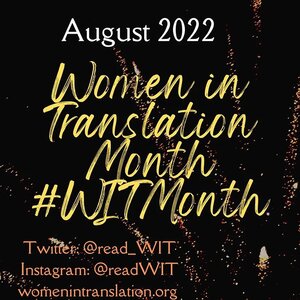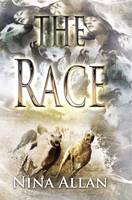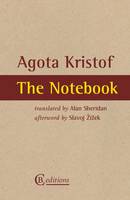Ágota Kristóf (1935-2011) was a Hungarian writer who lived in exile in Switzerland, and wrote in French, In 2014, I read The Notebook, her novel about twin boys driven to acts of cruelty in wartime and after. The brothers don’t allow themselves to express emotion, and the specifics of geography and time are diluted. I found the effect powerfully austere.
The Notebook is a complete experience in itself, but it’s also the first part of a trilogy. I’d always intended to read the rest, and now I have. It’s interesting to see how each volume casts the previous one in a different light.
The Notebook ended with the brothers separated: one crossed the border into a neighbouring country, the other stayed behind. This was, in its way, impossible to imagine, as the boys had narrated as one ‘we’ throughout. The Proof (tr. David Watson) picks the story up with the brother who returned home. Now, we learn his name: Lucas. This alone makes him seem more human and approachable, and we see Lucas trying to adjust to life alone, developing relationships with others and becoming an adult.
But it’s not as simple as that. Kristóf’s prose is as sparse as in The Notebook, creating a stark emotional distance. Lucas is still capable of cruelty, and there are times when we sense he’s being deeply affected by all he has been through – but he won’t let it show, and we can’t get close enough to him to really understand how he feels.
Geography and time are again flattened out, which heightens the sense of being trapped: years pass, yet everything feels essentially the same. But things are about to change when Lucas’s brother Claus finally returns, and suddenly what we’ve read is called into question.
The Third Lie (tr. Marc Romano) goes even further in breaking identities down. At the start, it is narrated by Claus, then at times appears to be narrated by Lucas, and at other times it’s not clear at all. Scenes from The Notebook are retold in a different form that challenge our fundamental assumptions: were there ever two brothers at all?
What I get most from Kristóf’s trilogy as a whole is the sense of being ultimately unable to reach the truth of what happened to its characters. There is great trauma in the background, yet it’s all words on paper in the end – and that, to me, is what gives the trilogy its power.
CB Editions publish a single-volume edition of Ágota Kristóf’s trilogy.




Recent Comments